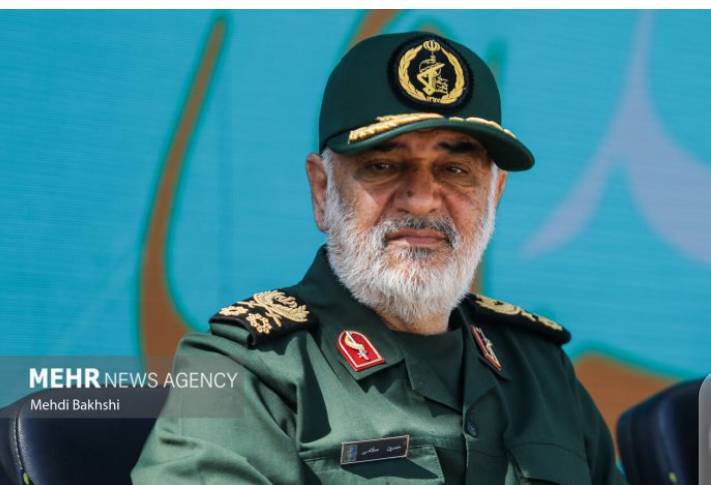Major General Salami: Defeated Forces in Gaza, Lebanon Now Leading Brutal Attacks on Syria
By IFP Editorial Staff
November 30, 2024
In a strong rebuke of ongoing hostilities in the Middle East, Major General Hossein Salami, commander of Iran’s Islamic Revolutionary Guard Corps (IRGC), has accused forces defeated in Gaza and Lebanon of escalating brutal attacks on Syria. Speaking during a press conference on Saturday, Salami outlined what he described as a “coordinated campaign of aggression†aimed at destabilizing the region and undermining resistance forces.
“Those who faced humiliating losses in Gaza and Lebanon are now redirecting their fury towards Syria,†Salami said. “This is a desperate attempt to regain control and assert dominance, but the resistance stands resilient.â€
A Pattern of Escalation
Salami’s comments come in the wake of intensified airstrikes and military incursions targeting Syrian territories. In recent weeks, reports have emerged of attacks on critical infrastructure, including airports and energy facilities, primarily in Damascus and Aleppo. These strikes, allegedly carried out by Israel, have exacerbated Syria’s humanitarian crisis and drawn widespread condemnation from allies of the Syrian government.
Salami argued that these attacks were part of a broader strategy to weaken the axis of resistance, which includes Iran, Syria, Hezbollah in Lebanon, and Palestinian groups. He accused Western powers, particularly the United States, of complicity in these actions, citing their continued military support for Israel and opposition groups in Syria.
Regional Implications
The IRGC commander emphasized the resilience of resistance forces, pledging continued support for allies in the region. “The resistance axis remains united and steadfast. Despite these acts of aggression, we will not waver in our commitment to defending the sovereignty and dignity of our people,†he declared.
Salami also highlighted the growing solidarity among regional actors in countering external interference. He pointed to recent diplomatic efforts aimed at fostering unity among Middle Eastern nations, including closer ties between Iran and countries like Saudi Arabia and Iraq.
Calls for International Action
The escalating violence in Syria has reignited calls for international intervention to prevent further civilian casualties and destruction. Human rights organizations have expressed alarm over the worsening situation, urging the United Nations and global powers to prioritize peace and stability in the region.
While the situation remains fluid, Salami’s remarks underscore the IRGC’s determination to counter what it sees as a renewed offensive by its adversaries. As the Middle East grapples with the fallout of these developments, the potential for further escalation looms, leaving the international community on edge.
As tensions rise, the world watches closely, hoping for a resolution to one of the most protracted and devastating conflicts in modern history.




No comments yet
Be the first to share your thoughts!